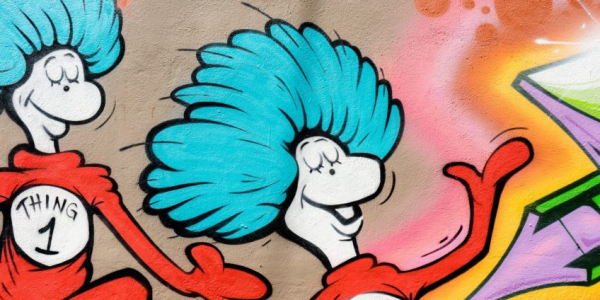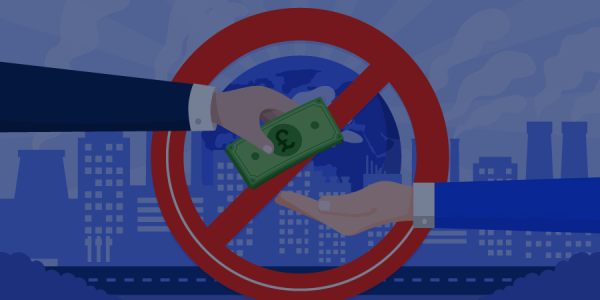Imagine participating in a game where you play by the rules, put in the effort, and make honest investments, only to discover later that the winner cheated. It's a frustrating and disappointing experience that leaves you feeling that the game is unfair and unjust. Unfortunately, such instances occur in the stock market, where certain individuals exploit their privileged access to confidential information to gain an unfair advantage. This is known as "insider trading."
In this comprehensive article, we will delve into the world of insider trading, exploring its various types and the different ways it can occur. We will also explain why it is deemed illegal and unethical and its impact on the integrity and fairness of financial markets. Furthermore, we will examine the severe penalties and legal consequences that individuals and organizations face when caught engaging in this illegal activity.
We will provide real-world examples of insider trading in India, shedding light on how it affects individual investors and the broader financial system. By the end of this article, you will have a deep understanding of this critical topic and the measures that exist to prevent and detect insider trading. So, prepare to learn about one of the most critical issues facing the financial world today.
Understanding Insider Trading
Insider trading occurs when individuals buy or sell stocks of a publicly traded company using material, non-public information that has not been disclosed to the public. The term "insider" encompasses anyone with access to confidential information that could influence the stock price, including company employees, consultants, advisors, and third-party contractors who may have access to Unpublished Price-Sensitive Information (UPSI).
| UPSI - As per the Securities and Exchange Board of India (SEBI), UPSI is defined as any information that directly or indirectly relates to a company and has the potential to significantly affect the company's securities' price if disclosed publicly. |
Insider trading can manifest in various forms, such as buying and selling stocks, tipping others about confidential information, or manipulating the stock market by executing fraudulent trades.
When Insider Trading is Illegal
Imagine a hypothetical scenario in which Sima, an employee of XYZ Inc., gains access to confidential information during internal company meetings that reveal the impending release of a revolutionary product aimed at significantly boosting the company's profits. With this knowledge in hand, the executive purchases a large number of shares in XYZ Inc. before the public announcement. As a result, when the news becomes public, the stock price experiences a significant surge, leading to a substantial profit for the executive. Such action constitutes insider trading, as the executive used non-public information to gain an unfair advantage in trading the company's securities.
When Insider Trading is Not Illegal
Insider trading is a multifaceted subject. While it is commonly perceived as unlawful, not all forms of insider trading are illegal. The legality of insider trading depends on the information insiders use to make their trading decisions.For instance, consider the scenario where Anant, the CEO of XYZ Company, sells 5000 shares of XYZ on April 20, 2023, and reports the changes in promoter holdings to SEBI by April 23, 2023. Anant, as an insider involved in trading, was not penalized. Why is that?Although trading based on UPSI is prohibited, not all insider trading is disallowed. Corporate insiders, such as officers, directors, employees, and significant shareholders, can buy and sell stock in their own companies under certain conditions.For example, insiders may engage in legal insider trading when they sell their Employee Stock Option Plans (ESOPs) or other company securities to meet personal financial needs. However, in such cases, the trades must comply with SEBI regulations and be disclosed to the stock exchanges. The company must also notify the exchanges about the trading details of such insiders within a few days. This ensures transparency and regulatory compliance. Such insider trading is not considered illegal if it adheres to the prescribed procedures.
Why Insider Trading is Considered Illegal
Insider trading is a severe violation as it contradicts the principles of transparency and equal opportunities in the market, jeopardizing the integrity and equity of financial markets. It creates an unbalanced playing field where individuals with access to non-public information can reap significant profits at the cost of other investors who need such information.For instance, let's consider a hypothetical scenario where a small retail investor purchases shares in a company without knowing the upcoming negative news, such as a significant product recall or impending legal action against the company. On the other hand, an insider who has access to this confidential information sells their shares before the news becomes public, evading substantial losses. Such an act would be considered illegal insider trading, as the insider used privileged information to gain an unfair advantage over other investors.Insider trading's harmful effects extend beyond individual investors and significantly threaten the overall investor market. Here are some more possible reasons why insider trading is detrimental to the market:
- Market liquidity: The exchange of confidential information among insiders can lead to abnormal price movements, hindering the market's liquidity and efficiency. This, in turn, can have a cascading effect, making it more complex and expensive for other investors to engage in trading activities.
- Cycle of corruption: Allowing insider trading can foster an environment of dishonesty and personal gain, where individuals in influential positions misuse their authority for their benefit. This can have severe implications, harming institutions and innocent individuals who might become entangled in corrupt activities.
- Violation of trust: Corporate insiders are entrusted with confidential information and expected to act in the company's and its shareholders' best interest. Using this information for personal gain by trading on material non-public information breaches trust and violates the confidence entrusted to them.
- Degrading standards: Permitting insider trading to thrive can result in degrading the market's overall standard. This can make it more challenging for reputable corporations to gather capital while making it easier for inadequate companies to remain operational.
- Reputational damage: When a company is involved in an insider trading scandal, it can damage its reputation and make it difficult to conduct business. This can lead to losing customers, contracts, and investments, damaging the company's long-term prospects.
Regulatory Authority: The Role of SEBI in Preventing Insider Trading
SEBI is the primary regulatory body overseeing and regulating securities markets in India to promote transparency, fairness, and efficiency while protecting the interests of investors.During the early 1990s, India experienced a surge in insider trading cases that led to a loss of investor confidence and undermined the integrity of securities markets. In response, SEBI introduced stringent rules and regulations to prevent insider trading and safeguard the interests of investors.One of SEBI's significant steps in preventing insider trading was the introduction of the Prohibition of Insider Trading (PIT) Regulations in 1992. These regulations mandated that every transaction made by insiders of listed companies be reported to the stock exchange, making it easier to track any suspicious activity. SEBI also established an Insider Trading Task Force to investigate and prosecute insider trading cases.To further strengthen its regulations, SEBI updated the PIT Regulations in 2015 and expanded the definition of insiders to include anyone with access to unpublished price-sensitive information.SEBI also requires companies to establish a Code of Conduct and a Code of Fair Disclosure and conduct regular training programs for insiders to prevent accidental or intentional information leaks.Moreover, SEBI has implemented various technological measures to ensure a secure and efficient trading environment. For instance, it has developed an online Integrated Market Surveillance System to detect suspicious trading activities and investigate potential violations. SEBI also maintains a comprehensive database of insider trading to identify any possible market manipulations.
Insider Trading Penalties: The Consequences for Violating the Law
Penalties for insider trading can vary from substantial fines to criminal charges depending on the severity of the violation. The maximum penalty for insider trading is INR 25 crores or three times the profits earned through the breach, whichever is higher.SEBI can prohibit trading in securities, prevent the holding of directorial positions, and even result in imprisonment for individuals found guilty of insider trading. Moreover, those found guilty of insider trading may also have to disgorge the illegal profits made through the violation. This ensures that insider traders do not profit from their illicit activities.One of India's most notable insider trading cases involved Reliance Industries. In 2017, SEBI imposed a penalty of INR 25 crores on the company, its chairperson Mukesh Ambani, and other executives for insider trading in Reliance Petroleum shares in 2007. The case involved the alleged use of insider information to make profits in the stock market, which SEBI found to violate insider trading regulations.
The Importance of Ethical Trading Practices
Since 1992, there have been significant developments in laws against insider trading, with a growing emphasis on combating illegal practices. SEBI has played a crucial role in enforcing these laws and penalizing offenders. In recent years, the regulator has taken various measures to prevent insider trading, such as increasing surveillance of trading activities and conducting frequent inspections. Despite these efforts, insider trading still occurs in some cases. The primary responsibility for preventing insider trading lies with the company's top executives, including the CEO and board of directors. They must ensure that employees understand the legal and ethical implications of insider trading and are held accountable for any misconduct. Companies should establish robust compliance programs and provide regular employee training to prevent insider trading. This can foster a culture of transparency and ethical behaviour within the organization.In addition to its legal and ethical implications, insider trading can damage the company's reputation and erode investor confidence. Therefore, companies must adopt a proactive approach to prevent insider trading. By promoting transparency and accountability, companies can create a healthy and sustainable financial market that benefits all stakeholders.
Disclaimer: No information contained in this website may be reproduced, transmitted, or copied (other than for the purposes of fair dealing, as defined in the Copyright Act, 1957) without the express written permission of Rainmaker Online Training Solutions Pvt. Ltd.










